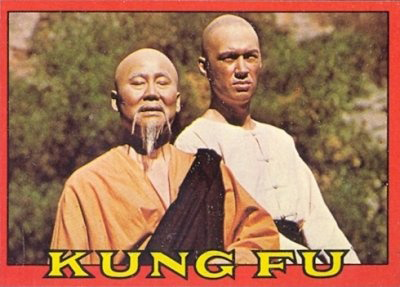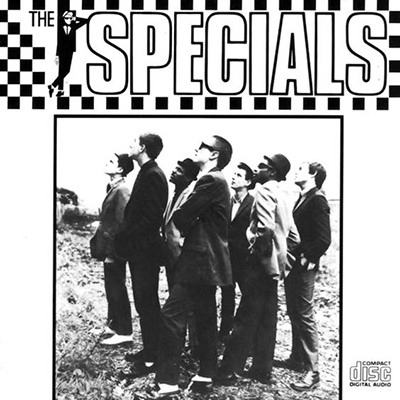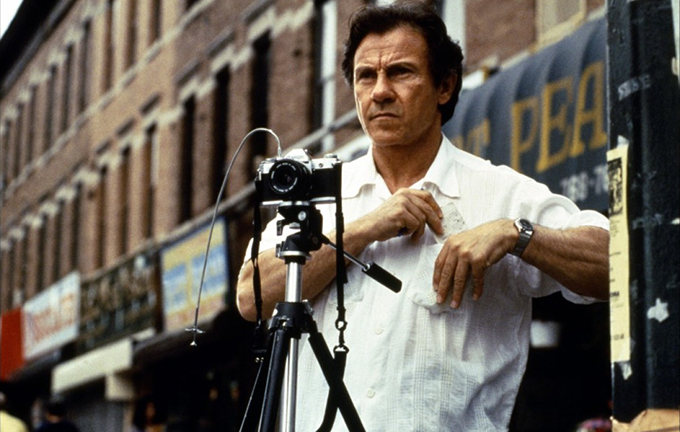Go to the page grasshopper
 Thursday, January 26, 2017 at 05:04PM
Thursday, January 26, 2017 at 05:04PM 
Ok, warning, this post might get all Kung Fu mystic – I'd say Zen, but I think there's already enough misunderstandings about Zen Buddhist principles out there... so let's stick with TV.
Sometimes writing craft is full of sayings that have the feel of Zen koan.
Show don't tell.
Find the conflict.
Release the hounds.
Ok, maybe not that last one. But can't you just see the master telling Caine to obey these principles. Snatch the misplaced modifier from my hand, grasshopper.
Figured I'd start with my digressions - get it out of the way. Okay, so what's the profundity here?
Lately, I've been thinking a lot about the discipline of writing. I work full time at a University, so it can be hard to find the time to write – especially after a long day. So I decided a few years to, ugh, get up in the morning. I am not one of those savages who loves the early morning hours when all is asleep in the world or some poetic crap like that— no, it's as simple as, if I don't get up, no writing will happen that day.
At the end of a work day, and lots of other commitments (including a new love and discipline of learning Tai Chi), there's just not much juice in the tank. Sometimes I can edit, or think of story ideas, or write various correspondence. But for the actual words on the page, it's up at 6:00 AM, baby. And when I say baby, I mean, I'd rather stay in bed sleeping like one.
So bleary-eyed, I munch on the raisin toast and wait for the caffeine to kick in. I really don't know what will happen when I come to the page, but I have learned I have to keep returning to it.
Go to the page.
That's my mantra these days. Sometimes I go and the words just fly out of me. Sometimes they are like week- old gummies stuck on a sneaker and pried off with a dull butter knife. But I have to keep going to the page.
When things are happening, and maybe even when they are not, my subconscious kicks in. Those times it feel like I'm not really writing – I am just observing. I'm watching a character, seeing what he or she thinks, or much better, what they do. If I follow them long enough and they aren't doing anything, I'll throw something at them.... say, a flaming cat. That should get things going.
But sometimes, after multiple fiery felines, at least two of Chekhov's guns, an earthquake, and a roller skating vampire that sings show tunes... well, still nothing is happening. And then I have to call it a day, or a morning at least. Get ready for work, and leave the page.
But in the morning, I gotta go back. Don't get me wrong, I am not some stoic where the discipline always wins. Yes, I believe I should write every day – I've seen how that changes things. It's what "real writers do". I put it in quotes because I was relieved to read that there are authors out there that don't believe in the whole write everyday thing. Breaks are taken. But the problem begins when the breaks become too often, and too long.
I remember Stephen King saying (I think in On Writing) that he feels you should be able to bang out a novel first draft in a few months, if you are disciplined (it also helps if you happen to be Stephen King). But it was his other comment about this process that struck me. To paraphrase, he said that if you take too long to write a first draft, or take long spaces in-between, all of your novel's characters start to feel like European relatives. You know they exist, they are out there, but they are distant, and you don't really know them.
You have to go to the page. Daily if possible. If not possible, do it anyway. (Zen cheerleading koan).
But why? Why do I have to do it? Well, you just never now what might spill out of that subconscious. I believe there is a certain fear in that blank page - I've seen it a lot in younger writers. And I think I used to have it. But when I decide to just face into it, and begin to write, no matter how crappy it is, something may come of it. Something usually does.
So grasshopper... wait, why is he called that? Do we ever know? Why did the master choose that name? Why couldn't he be "Ant" (more industrious), or "Beetle" (tough, hard shell, fun to step on) - or why bug at all? Why couldn't he be Skippy?
Because he wasn't. Sheesh. Now grasshopper, get your ass to the page.
Huh - I guess there was an explanation for the name. Have a look...






